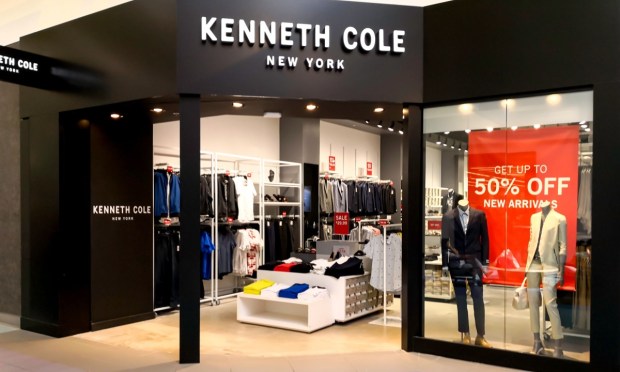
Earlier this month at The Lead Summit in New York City, Jed Berger, president of apparel company Kenneth Cole Productions, and PJ Oleksak, CEO of Nuts.com, offered valuable perspectives on steering their companies through transformative changes while preserving brand integrity.
Kenneth Cole, renowned for his innovative designs, made headlines when he took his eponymous company private in 2012 after an 18-year stint as a publicly traded entity.
“We’ve been in business for 41 years,” Berger noted. “Obviously, the business model initiatives and products have evolved in incredible ways. What haven’t evolved are the principles and values of the man and the brand. He believed in the importance of design and product creation, but it’s not what you stand in, but what you stand for.”
During a presentation titled, “Growing Your Brand in Uncertain Times,” Berger discussed Cole’s decision to take the company public in 1994, before taking it private again in 2012 so he could re-infuse it with the creativity that made it famous.
Transitioning from a public to a private company brought about a profound shift in strategic focus and operational priorities. As a publicly traded entity, metrics like comp-store sales and revenue dominated decision-making. Upon going private, Kenneth Cole realized these metrics didn’t always serve long-term objectives. In a private setting, the company’s focus shifted from short-term market pressures to achieving net results aligned with its ultimate goals.
This shift allowed for a reassessment of its resources and investments, where inventory transformed from a liability into a strategic asset crucial for operational strength. Similarly, advertising evolved from an expense to a pivotal investment in nurturing brand equity and long-term growth. With newfound freedom, Kenneth Cole redirected resources toward enduring goals, emphasizing sustained efficiency and productivity over short-term fluctuations.
Central to this transformation was a streamlined approach to consumer engagement, consolidating brands into a cohesive identity that resonates deeply with their audience. Beyond product aesthetics, Kenneth Cole embraced sustainability, creating a dialogue about identity and purpose that goes beyond fleeting trends. Looking ahead, the company remains committed to sustainable growth and innovation, prioritizing authenticity and consumer connection to inspire a lasting brand legacy.
“Those values have allowed us to be who we are today,” Berger said. “The company has undergone a significant transformation from a business model as a public company with hundreds of stores, outlets, manufacturing. Today, we look different. We look like a traditional IP company with licensing and strategic partners. We’re a little bit of a unicorn brand within that model. We very much believe we’re a brand and not a label.”
As the company’s founder, Cole exemplifies this approach by advocating for issues like HIV/AIDS in the ’80s and ’90s, reproductive rights and mental health as chairman of the Mental Health Coalition. His personal ethos threads through his brand’s identity, shaping how it gives back and collaborates on products connected to mental health.
Authenticity and trust are paramount, Berger noted. A genuine point of view is essential for relevance, ensuring everything you do is contextually meaningful and consistently communicated. “I’m a big proponent of self-awareness,” he said. “You control the controllable. Tell your story and have your products come to life.”
Signet Jewelers, the world’s largest diamond retailer, builds authenticity with its customers by leveraging its customer service department as a key engagement factor that goes beyond transactional sales. Signet’s robust service platform enhances customer loyalty by guaranteeing prompt and effective assistance, fostering trust and nurturing favorable brand sentiment.
“Authenticity and trust are everything,” Berger said. “You have to have an authentic point-of-view to be relevant. Everything we do has to have context. You have to rinse and repeat that.”
Meanwhile, Oleksak emphasized a key principle guiding brand growth: Love. Her company’s philosophy centers on customer obsession and delivering exceptional products. As a privately held, family-owned business, Nuts.com prioritizes building connections and fostering loyalty.
“I’m truly a builder; it’s in my DNA,” Oleksak said, emphasizing non-linear growth strategies that involve testing, learning and pivoting, with a tolerance for failure to drive progress. For Nuts.com, establishing a clear North Star and navigating cultural changes are pivotal to success.
With a dedicated customer base, Oleksak focuses on diversifying through voice-of-customer insights, channel expansion and product innovation. Company officials closely monitor trends to meet diverse consumer needs and ensure a seamless shopping experience.
Celebrating its 95th anniversary, Nuts.com embodies a culture of continuous learning and adaptability, fostering resilience in evolving markets by staying connected and responsive to customer feedback.
“When we think about brand growth, we think about love,” Oleksak said. “We’re obsessed with our customers and obsessed with giving them an amazing product, and we measure it very rigorously. We want to build connections.”
Snacking as a category has become more important and relevant, she added.
“We lead very busy lives,” she said. “This idea of snacking and having things that are always there is here to stay.”
For Oleksak and Nuts.com, the learning process never stops.
“At the heart of it, part of our culture is we’re students of the game and always learning,” Oleksak said. “As an organization, those two things make it malleable and adaptable in changing times. When you have that as a model, you’re constantly learning and evolving.”